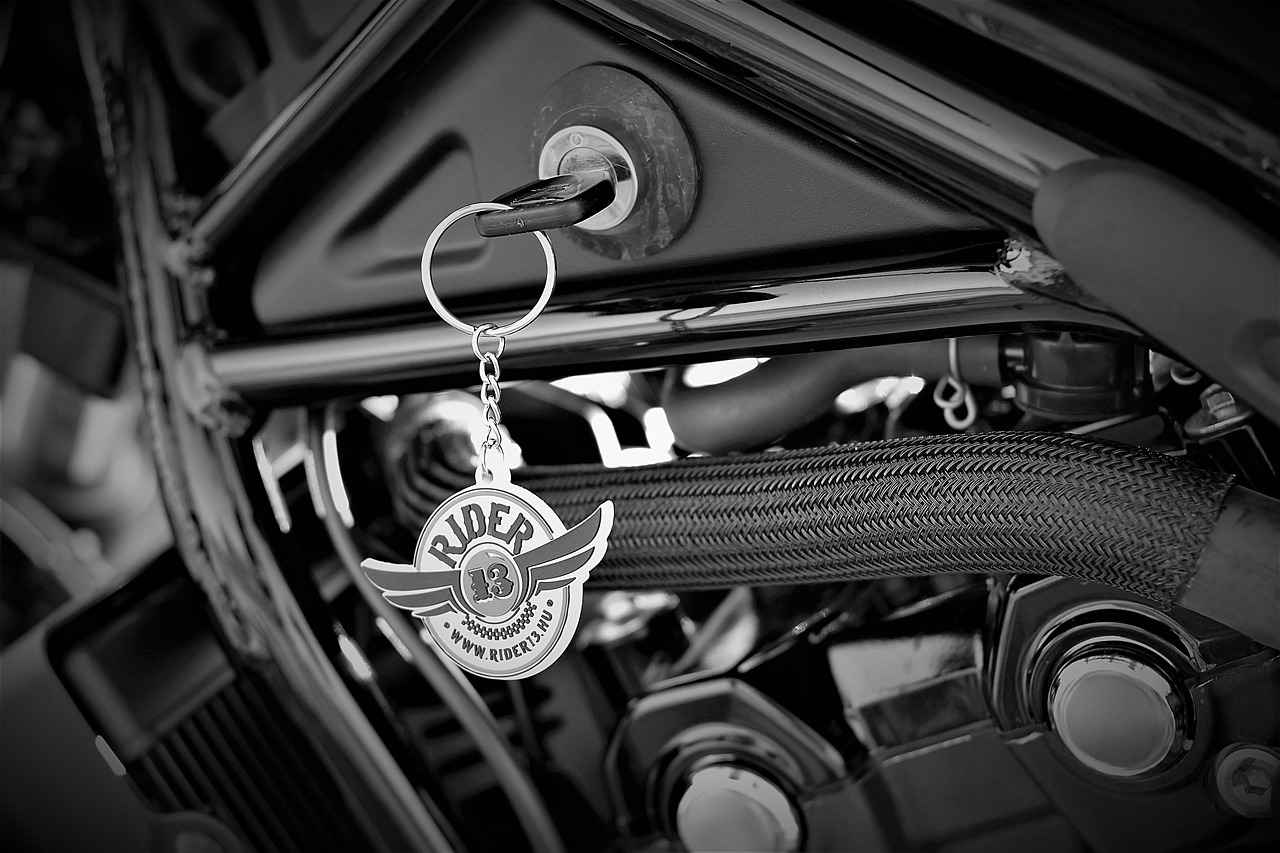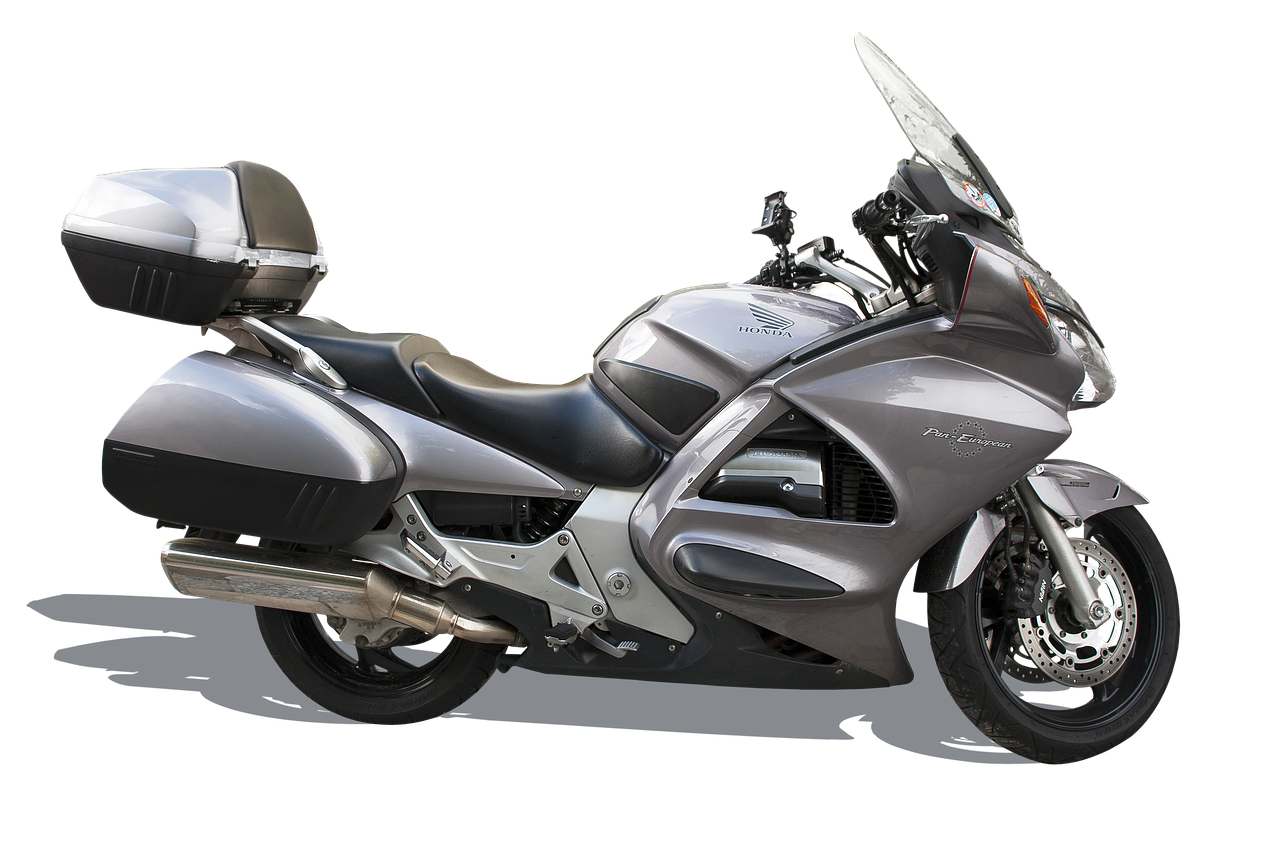This article delves into effective strategies to enhance fuel efficiency in Honda Civics. By providing practical tips, expert insights, and maintenance advice, we aim to assist owners in achieving optimal miles per gallon (MPG).
Understanding Honda Civic MPG Ratings
The MPG ratings for various Honda Civic models are essential for understanding fuel efficiency. These ratings are determined through standardized testing, which considers factors such as engine size, vehicle weight, and aerodynamics. Knowing these ratings can help you gauge your vehicle’s performance and set realistic fuel economy goals.
Essential Maintenance for Optimal Fuel Efficiency
Regular maintenance is crucial for maximizing MPG. Here are some key maintenance tasks:
- Engine Health and Performance: Keeping your engine in top condition is vital. Regular inspections and tune-ups can help maintain optimal performance, which directly impacts fuel economy.
- Oil Changes and Quality: Frequent oil changes using high-quality oil can significantly enhance engine performance. This leads to improved fuel efficiency and better overall operation.
- Air Filter Replacement: A clean air filter ensures optimal airflow to the engine. This boosts combustion efficiency, which can result in higher MPG.
Tire Maintenance for Better Fuel Economy
Proper tire maintenance is another important factor that affects fuel efficiency:
- Tire Pressure: Maintaining the correct tire pressure is essential. Under-inflated tires can increase rolling resistance, decreasing fuel economy.
- Tread Depth: Regularly checking tire tread depth ensures adequate grip and efficiency, contributing to better MPG.
Driving Habits That Improve Fuel Efficiency
Adopting efficient driving habits can lead to substantial fuel savings:
- Accelerating and Braking Techniques: Smooth acceleration and braking can significantly improve fuel economy. Avoiding sudden starts and stops conserves fuel.
- Optimal Speed for Fuel Efficiency: Driving at moderate speeds, typically between 45-65 mph, can enhance MPG. This segment emphasizes the importance of maintaining a steady speed.
Utilizing Technology for Enhanced Efficiency
Modern Honda Civics come equipped with technology that can aid in fuel efficiency:
- Eco Mode Benefits: Understanding how Eco Mode adjusts engine performance can help maximize your Civic’s fuel efficiency.
- Fuel Consumption Monitoring Systems: Utilizing onboard fuel consumption monitors provides real-time data, helping drivers adjust their habits for better MPG.
Choosing the Right Fuel for Your Honda Civic
The type of fuel you use can impact your Civic’s MPG. Using the recommended fuel grade ensures optimal engine performance and efficiency, ultimately benefiting your fuel economy.

Understanding Honda Civic MPG Ratings
The Honda Civic is renowned for its impressive fuel efficiency, making it a popular choice among environmentally conscious drivers and those looking to save on fuel costs. Understanding the MPG ratings of various Honda Civic models is essential for potential buyers and current owners alike. These ratings, which stand for “miles per gallon,” indicate how far a vehicle can travel on a single gallon of fuel, and they vary across different models and engine types.
MPG ratings are determined through standardized testing procedures established by the Environmental Protection Agency (EPA). During these tests, vehicles are evaluated under controlled conditions that simulate typical driving scenarios. Factors such as speed, acceleration, and braking are carefully measured to provide a reliable estimate of fuel efficiency.
Several key factors influence the MPG ratings of Honda Civics:
- Engine Type: Different engines, such as the standard gasoline engine or the more fuel-efficient hybrid variant, will have varying MPG ratings.
- Transmission: The type of transmission—manual or automatic—can also impact fuel efficiency. Continuously Variable Transmissions (CVTs) often provide better MPG due to their ability to maintain optimal engine speed.
- Weight: Heavier models may consume more fuel, affecting overall efficiency.
- Driving Conditions: City driving typically yields lower MPG compared to highway driving due to frequent stops and starts.
- Maintenance: A well-maintained vehicle will generally perform better in terms of fuel efficiency. Regular oil changes, tire pressure checks, and air filter replacements can help maintain optimal MPG.
Understanding these factors allows Honda Civic owners to make informed decisions about their vehicles and adopt practices that can enhance fuel efficiency. Whether you are considering a purchase or looking to improve your current vehicle’s performance, being aware of MPG ratings and the elements that affect them is crucial.

Essential Maintenance for Optimal Fuel Efficiency
To achieve the best possible miles per gallon (MPG) in your Honda Civic, regular maintenance is not just recommended; it is essential. Neglecting routine upkeep can lead to decreased fuel efficiency and increased costs at the pump. Below are key maintenance tasks that can help enhance your vehicle’s fuel economy.
- Regular Oil Changes: Frequent oil changes with high-quality oil are critical for maintaining engine performance. Clean oil reduces friction and helps the engine run smoothly, which can lead to improved MPG.
- Air Filter Maintenance: A clean air filter is vital for optimal airflow to the engine. Replacing a clogged air filter can significantly enhance combustion efficiency, resulting in better fuel economy.
- Tire Pressure Checks: Maintaining the correct tire pressure is crucial for fuel efficiency. Under-inflated tires can increase rolling resistance, leading to lower MPG. Check tire pressure monthly and before long trips.
- Tire Rotation and Alignment: Regular tire rotation and proper wheel alignment can ensure even tire wear and improve handling. This not only enhances safety but also contributes to better fuel efficiency.
- Fuel System Cleaning: Periodically cleaning the fuel system can help remove deposits that may hinder fuel flow. A clean fuel system ensures that your engine receives the right amount of fuel for optimal performance.
- Battery and Electrical System Check: A well-functioning battery and electrical system can help your engine start efficiently. Ensure that your battery is in good condition and that all electrical components are functioning properly.
By committing to these essential maintenance tasks, you can ensure that your Honda Civic operates at peak efficiency, ultimately leading to improved fuel economy and savings at the pump. Remember, a well-maintained vehicle not only performs better but also lasts longer.
Engine Health and Performance
The engine is often referred to as the heart of your vehicle, and for good reason. It serves as the primary source of power, driving your Honda Civic and determining its overall performance. To ensure that your engine operates at peak efficiency, it’s essential to pay close attention to its health and maintenance. This section delves into how maintaining your engine can significantly impact your Civic’s miles per gallon (MPG) and overall driving experience.
- Regular Inspections: Frequent engine inspections can identify potential issues before they escalate. Look for signs of wear, leaks, or unusual noises that could indicate problems.
- Quality Fuel: Using high-quality fuel can improve combustion efficiency. Fuel with detergents helps keep the engine clean, ultimately enhancing performance and fuel economy.
- Engine Tune-Ups: Regular tune-ups, including checking spark plugs and ignition timing, can optimize engine performance. A well-tuned engine burns fuel more efficiently, which can lead to improved MPG.
- Cooling System Maintenance: The engine’s cooling system is crucial for maintaining optimal operating temperatures. Ensure that the coolant is at the correct level and that the system is functioning properly to prevent overheating, which can affect fuel efficiency.
- Exhaust System Checks: A clogged or damaged exhaust system can hinder engine performance. Regularly check for blockages or leaks to ensure that exhaust gases are expelled efficiently.
In conclusion, a well-maintained engine not only enhances performance but also plays a critical role in maximizing your Honda Civic’s fuel efficiency. By prioritizing engine health through regular maintenance and inspections, you can enjoy improved MPG and a smoother driving experience.
Oil Changes and Quality
When it comes to maintaining your Honda Civic, one of the most crucial aspects is ensuring that you perform regular oil changes. Frequent oil changes using high-quality oil can significantly enhance engine performance and efficiency, ultimately leading to better fuel economy. Understanding the importance of this practice is essential for every Civic owner.
Oil serves as the lifeblood of your engine, lubricating its moving parts and reducing friction. Over time, oil degrades and becomes less effective, which can lead to increased engine wear and reduced performance. By changing your oil regularly, you ensure that your engine operates smoothly, allowing for optimal combustion and improved fuel efficiency.
High-quality oils, particularly those that meet or exceed the specifications set by Honda, provide better protection against thermal breakdown and sludge formation. This means that your engine can perform at its best for a longer period. Using synthetic oils can also offer enhanced protection and performance, especially in extreme temperatures, further contributing to fuel economy.
| Oil Type | Benefits |
|---|---|
| Conventional Oil | Cost-effective, suitable for standard driving conditions. |
| Synthetic Oil | Superior protection, better performance in extreme temperatures, longer intervals between changes. |
| High-mileage Oil | Formulated for vehicles with over 75,000 miles, helps reduce oil consumption and leaks. |
In addition to changing the oil, it’s important to replace the oil filter regularly. A new filter ensures that contaminants do not circulate back into the engine, maintaining the integrity of your oil. Together, these practices not only enhance your Civic’s performance but also contribute to a more sustainable driving experience.
Ultimately, prioritizing oil changes with high-quality oil is a simple yet effective way to maximize your Honda Civic’s fuel efficiency, keeping your vehicle running smoothly for years to come.
Air Filter Replacement
Maintaining your Honda Civic for optimal fuel efficiency involves several key components, and one of the most crucial is the air filter. A clean air filter is essential for ensuring that the engine receives the right amount of air, which directly impacts its performance and efficiency.
The air filter plays a vital role in the combustion process. When the filter is clogged with dirt and debris, it restricts airflow to the engine, leading to inefficient combustion. This inefficiency can result in a noticeable decrease in miles per gallon (MPG). By regularly replacing the air filter, you can help maintain optimal airflow, which in turn enhances combustion efficiency. As a result, your vehicle can achieve better fuel economy, allowing you to travel further on each tank of gas.
Moreover, a clean air filter contributes to improved engine performance. When the engine breathes easily, it operates more smoothly and responds better to acceleration. This enhanced performance not only boosts MPG but also extends the life of your engine, as it reduces strain during operation.
It is advisable to check your Honda Civic’s air filter every 15,000 to 30,000 miles, depending on driving conditions. If you often drive in dusty or polluted environments, you may need to inspect and replace the filter more frequently. Regular maintenance of the air filter is a simple yet effective way to ensure your vehicle runs efficiently.
In summary, investing time in air filter maintenance is a small but significant step towards maximizing your Honda Civic’s fuel efficiency. By ensuring that your air filter is clean, you enhance airflow, improve combustion efficiency, and ultimately boost your MPG, making your driving experience more economical and enjoyable.
Tire Maintenance for Better Fuel Economy
Maintaining your Honda Civic’s tires is essential for achieving optimal fuel efficiency. Two critical factors that significantly influence your vehicle’s miles per gallon (MPG) are tire pressure and tread depth. Understanding how these elements affect your Civic can lead to improved performance and savings at the pump.
Tire Pressure: A Key to Efficiency
Proper tire pressure is vital for maximizing fuel efficiency. Under-inflated tires create more rolling resistance, making your engine work harder and consume more fuel. Conversely, over-inflated tires can lead to uneven wear and reduced traction, which can also negatively impact MPG. It is recommended to check your tire pressure at least once a month and before long trips. The ideal pressure for your Honda Civic can usually be found on a sticker inside the driver’s door or in the owner’s manual.
Tread Depth: Ensuring Safety and Efficiency
The tread depth of your tires affects not only safety but also fuel economy. Tires with insufficient tread depth can lead to decreased traction, especially in wet or slippery conditions, which may cause the engine to use more fuel to maintain stability. Regularly checking the tread depth using the penny test—placing a penny in the tread and ensuring Lincoln’s head is partially covered—can help determine if your tires need replacement. Ideally, tires should have at least 2/32 inches of tread left for optimal performance.
Additional Tips for Tire Maintenance
- Rotate your tires every 5,000 to 7,500 miles to ensure even wear.
- Align your wheels if you notice uneven tire wear or if your vehicle pulls to one side.
- Inspect tires for damage or foreign objects that may affect performance.
By regularly maintaining your tires, you can enhance your Honda Civic’s fuel efficiency, ensuring that you get the most out of every gallon of gas. Proper tire care not only contributes to better MPG but also promotes a safer driving experience.

Driving Habits That Improve Fuel Efficiency
When it comes to maximizing fuel efficiency, driving habits play a pivotal role. By adopting smarter driving techniques, you can significantly enhance your Honda Civic’s miles per gallon (MPG) performance. Below are some effective strategies that can help you drive more efficiently and save on fuel costs.
- Smooth Acceleration and Braking: Avoid sudden starts and stops. Gradually accelerating and decelerating can improve fuel efficiency by reducing the amount of fuel consumed during abrupt changes in speed.
- Maintain Steady Speeds: Keeping a consistent speed, especially on highways, can lead to better MPG. Use cruise control when appropriate to help maintain a steady pace.
- Optimal Speed Range: Driving at moderate speeds, typically between 45 to 65 mph, is ideal for fuel efficiency. Speeds above this range can increase aerodynamic drag, leading to higher fuel consumption.
- Avoid Excessive Idling: Turn off your engine if you expect to be stationary for more than a minute. Idling consumes fuel without providing any mileage.
- Plan Your Trips: Combine errands into one trip to minimize driving distances. This not only saves fuel but also reduces wear and tear on your vehicle.
- Use Air Conditioning Wisely: Air conditioning can increase fuel consumption. Use it sparingly, especially at lower speeds, and consider rolling down the windows instead.
- Reduce Weight and Drag: Remove unnecessary items from your trunk and avoid carrying roof racks or cargo boxes when not in use, as they can increase weight and aerodynamic drag.
By implementing these driving habits, you can make a significant difference in your Honda Civic’s fuel efficiency. Not only will you save money at the pump, but you’ll also contribute to a greener environment by reducing emissions.
Accelerating and Braking Techniques
When it comes to maximizing fuel efficiency in your Honda Civic, driving habits play a crucial role. Among these habits, smoothing out your acceleration and braking can lead to significant improvements in fuel economy. This section will delve into how these techniques can reduce unnecessary fuel consumption during your daily drives.
Smooth Acceleration is essential for enhancing fuel economy. Instead of accelerating rapidly, which can cause the engine to work harder and consume more fuel, aim for a gradual increase in speed. This not only helps in maintaining better control of the vehicle but also allows the engine to operate more efficiently. By gently pressing the accelerator, you can optimize fuel usage and achieve better MPG.
Additionally, anticipating stops is another crucial aspect of smooth driving. Instead of waiting until the last moment to brake, try to anticipate traffic signals and other vehicles. This allows you to coast to a stop rather than slamming on the brakes, which can waste fuel. By maintaining a steady pace and using the brakes less frequently, you can enhance your Civic’s fuel efficiency.
Furthermore, maintaining a consistent speed can also contribute to improved fuel economy. Use cruise control on highways to avoid unnecessary acceleration and deceleration. This not only helps in conserving fuel but also reduces driver fatigue on long trips.
In summary, adopting smooth acceleration and braking techniques can significantly enhance your Honda Civic’s fuel economy. By making these small adjustments to your driving style, you can reduce fuel consumption and contribute to a more sustainable driving experience. Embrace these habits, and you will likely see a noticeable difference in your MPG.
Optimal Speed for Fuel Efficiency
Driving at moderate speeds is a fundamental strategy for enhancing the fuel economy of your Honda Civic. Research has consistently shown that maintaining a speed between 45 to 65 miles per hour can significantly improve your vehicle’s miles per gallon (MPG). This speed range allows for optimal engine performance and minimizes air resistance, which is crucial for fuel efficiency.
When driving at higher speeds, such as on highways, the engine works harder to overcome aerodynamic drag, which can lead to a noticeable decrease in MPG. For instance, exceeding 65 mph can result in a fuel economy drop of up to 15% or more. Conversely, driving too slowly can also negatively impact fuel efficiency due to increased engine load and inefficient fuel combustion.
To maximize your Honda Civic’s MPG, consider the following practical tips:
- Use Cruise Control: Engaging cruise control on highways can help maintain a steady speed, reducing unnecessary acceleration and braking.
- Plan Your Routes: Choose routes that minimize stop-and-go traffic. Less frequent stops can lead to better overall fuel economy.
- Limit Rapid Acceleration: Gradually increasing your speed rather than accelerating quickly can help conserve fuel.
It’s also important to monitor your vehicle’s performance and fuel consumption. By keeping track of your MPG, you can identify patterns in your driving habits and make adjustments where necessary. Additionally, consider utilizing your Honda Civic’s onboard fuel consumption monitoring system, if available, to gain real-time insights into your driving efficiency.
In conclusion, adhering to moderate speeds is a simple yet effective way to improve your Honda Civic’s fuel economy. By implementing these strategies, you can enjoy both savings at the pump and a more environmentally friendly driving experience.

Utilizing Technology for Enhanced Efficiency
In today’s automotive landscape, technology plays a vital role in enhancing fuel efficiency, particularly in modern Honda Civics. These vehicles are equipped with advanced systems designed to help drivers maximize their miles per gallon (MPG) while minimizing their environmental impact.
Modern Honda Civics come with a variety of innovative features aimed at improving fuel efficiency. A key component of this technological arsenal is the Eco Mode. When activated, Eco Mode modifies engine performance and transmission settings to prioritize fuel conservation. This mode allows for smoother acceleration and limits power output, which can significantly reduce fuel consumption during everyday driving.
Another significant feature is the fuel consumption monitoring system. This onboard technology provides real-time data on fuel usage, allowing drivers to track their MPG directly from the dashboard. By observing these metrics, drivers can make informed decisions about their driving habits, such as adjusting speed or avoiding rapid acceleration and hard braking, both of which can waste fuel.
- Eco Mode: Activates settings that enhance fuel efficiency.
- Fuel Consumption Monitoring: Displays real-time MPG data.
- Adaptive Cruise Control: Maintains a steady speed for optimal fuel use.
- Engine Start-Stop Technology: Automatically shuts off the engine during idling.
Additionally, features like adaptive cruise control help maintain a consistent speed on highways, which is crucial for fuel efficiency. This technology not only enhances comfort but also ensures that the vehicle operates within the most efficient RPM range.
Lastly, the engine start-stop technology automatically shuts off the engine when the vehicle is stationary, such as at traffic lights, and restarts it when the accelerator is pressed. This feature can lead to noticeable fuel savings in urban driving conditions.
By leveraging these advanced technologies, Honda Civic owners can significantly enhance their vehicle’s fuel efficiency, contributing to both cost savings and a reduced carbon footprint.
Eco Mode Benefits
The Honda Civic is renowned for its impressive fuel efficiency, and one of the key features that contribute to this is the Eco Mode. Understanding how Eco Mode adjusts engine performance can significantly enhance your driving experience and maximize fuel savings.
When activated, Eco Mode modifies various parameters of your vehicle’s engine and transmission settings. This includes altering the throttle response, adjusting shift points, and optimizing fuel injection. The primary goal is to promote more economical driving habits, which can lead to improved miles per gallon (MPG).
- Throttle Response: In Eco Mode, the throttle response is dulled, which means that pressing the accelerator will result in a more gradual increase in speed. This can help prevent sudden accelerations that consume more fuel.
- Shift Points: The transmission shifts at lower RPMs in Eco Mode, allowing the engine to operate more efficiently. This reduction in engine strain can contribute to better fuel economy.
- Fuel Injection Optimization: Eco Mode fine-tunes the fuel injection system to ensure that the engine uses the optimal amount of fuel for the current driving conditions, further enhancing efficiency.
Additionally, Eco Mode encourages drivers to adopt more fuel-efficient driving habits. For instance, the system may provide feedback on your driving style, prompting you to maintain consistent speeds and avoid rapid acceleration or hard braking. This not only helps in saving fuel but also extends the lifespan of your vehicle.
Moreover, utilizing Eco Mode can lead to significant savings over time. By consistently driving in this mode, you can see a noticeable improvement in your Civic’s fuel efficiency, potentially saving you hundreds of dollars annually on fuel costs.
In summary, understanding the benefits of Eco Mode and how it adjusts engine performance is crucial for any Honda Civic owner looking to maximize fuel efficiency. By embracing this feature, you can enjoy a smoother ride while also being kinder to your wallet and the environment.
Fuel Consumption Monitoring Systems
In today’s automotive landscape, fuel efficiency has become a critical factor for drivers, particularly for those who own a Honda Civic. One of the most effective ways to enhance your vehicle’s miles per gallon (MPG) is through the use of onboard fuel consumption monitors. These advanced systems provide real-time data, allowing drivers to make informed decisions about their driving habits.
By utilizing these monitors, drivers can track their fuel consumption patterns and identify areas for improvement. For instance, if the monitor indicates higher fuel usage during certain driving conditions, adjustments can be made. This could involve altering acceleration techniques, maintaining a consistent speed, or even planning routes that minimize stop-and-go traffic.
Moreover, real-time feedback empowers drivers to adopt more efficient driving behaviors. For example, if a driver notices that rapid acceleration leads to increased fuel consumption, they can consciously slow down their acceleration. This simple adjustment can lead to significant fuel savings over time. Additionally, the monitor can highlight the impact of driving at higher speeds, which typically results in lower MPG.
Another advantage of these systems is their ability to provide insights into engine performance. By monitoring fuel consumption alongside engine metrics, drivers can better understand how their vehicle’s performance affects fuel efficiency. This knowledge can prompt timely maintenance, ensuring that the engine operates at peak performance, which is essential for maximizing MPG.
In conclusion, integrating onboard fuel consumption monitors into your driving routine is a valuable strategy for enhancing fuel efficiency in your Honda Civic. By leveraging real-time data, drivers can make informed adjustments to their habits, ultimately leading to improved MPG and a more economical driving experience.

Choosing the Right Fuel for Your Honda Civic
When it comes to maximizing your Honda Civic’s fuel efficiency, one of the most significant factors is the type of fuel you choose. Using the recommended fuel grade can greatly enhance your vehicle’s performance and overall miles per gallon (MPG). This section delves into the benefits of selecting the right fuel for your Civic, emphasizing how it can lead to optimal efficiency.
Honda recommends using premium fuel for certain models, specifically those equipped with turbocharged engines. While it may be tempting to opt for regular fuel to save money, doing so can negatively affect your engine’s performance. Premium fuel typically has a higher octane rating, which helps prevent knocking and allows the engine to operate more smoothly. This can translate into better acceleration and improved fuel economy.
| Fuel Type | Octane Rating | Benefits |
|---|---|---|
| Regular Unleaded | 87 | Cost-effective for non-turbo models |
| Mid-Grade | 89 | Balances cost and performance |
| Premium Unleaded | 91+ | Enhances performance and efficiency |
In addition to the octane rating, the quality of fuel can also impact your Civic’s MPG. Using fuel that contains detergents can help keep your engine clean and functioning efficiently. Clean injectors and fuel systems promote better combustion, ultimately leading to improved fuel economy.
Moreover, consider the potential long-term savings. While premium fuel may cost more per gallon, the enhanced efficiency and performance can lead to fewer trips to the gas station, making it a worthwhile investment for many Honda Civic owners.
In summary, choosing the right fuel for your Honda Civic is essential for achieving optimal fuel efficiency. By selecting the recommended fuel grade and ensuring high-quality options, you can enjoy the benefits of improved engine performance and better MPG.
Frequently Asked Questions
- What is the average MPG for a Honda Civic?
The average miles per gallon (MPG) for a Honda Civic can vary depending on the model and year. Generally, newer models can achieve around 30-36 MPG combined, making them quite efficient compared to other vehicles in the same class.
- How often should I perform maintenance to improve my MPG?
Regular maintenance is key! Aim for oil changes every 5,000 to 7,500 miles, and don’t forget to check your air filter and tire pressure monthly. Consistent upkeep helps keep your engine running smoothly and maximizes fuel efficiency.
- Does driving speed affect my Civic’s fuel efficiency?
Absolutely! Driving at moderate speeds, typically between 45 to 65 mph, can significantly enhance your MPG. Going too fast can lead to increased wind resistance and fuel consumption, so keep it steady for better efficiency.
- What role does Eco Mode play in fuel efficiency?
Eco Mode adjusts your engine’s performance to prioritize fuel economy. When activated, it modifies throttle response and shifts patterns, helping you save fuel without sacrificing too much power.
- Is premium fuel better for my Honda Civic’s MPG?
Using the recommended fuel grade is crucial. For most Honda Civics, regular unleaded fuel is sufficient. Premium fuel may not provide a noticeable MPG improvement and could be an unnecessary expense.



